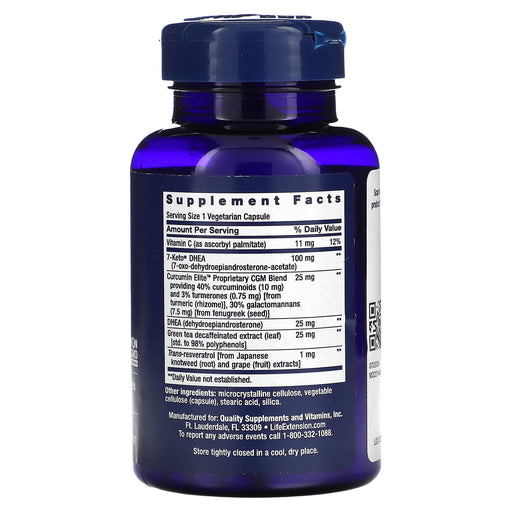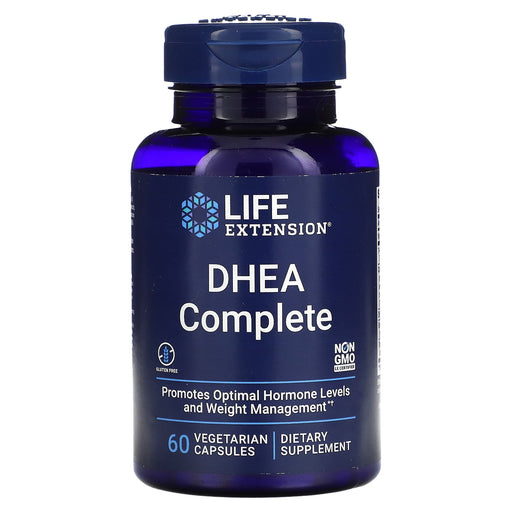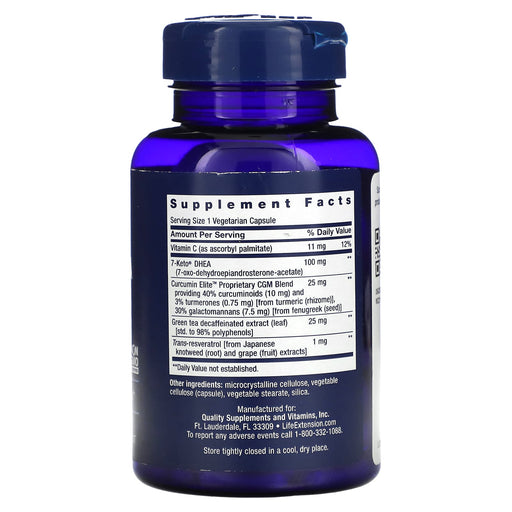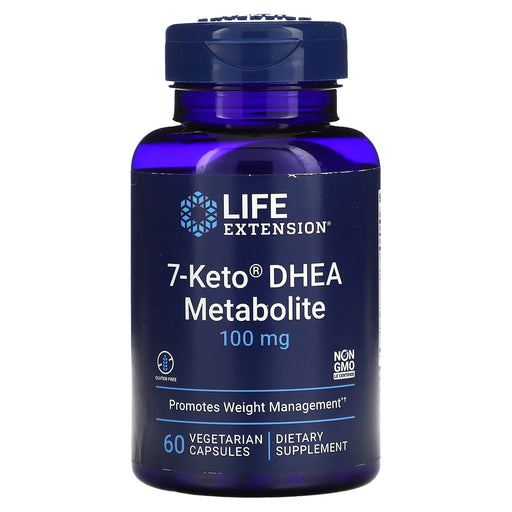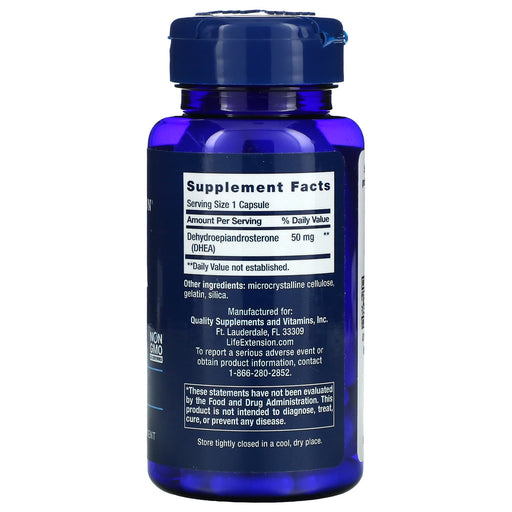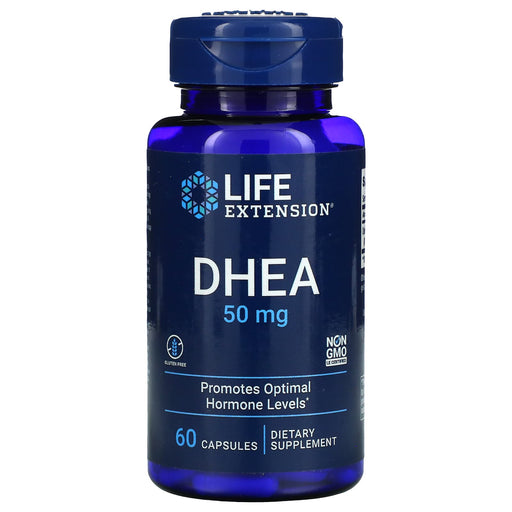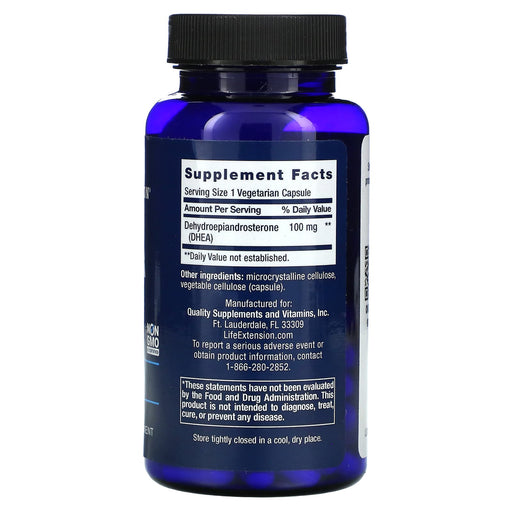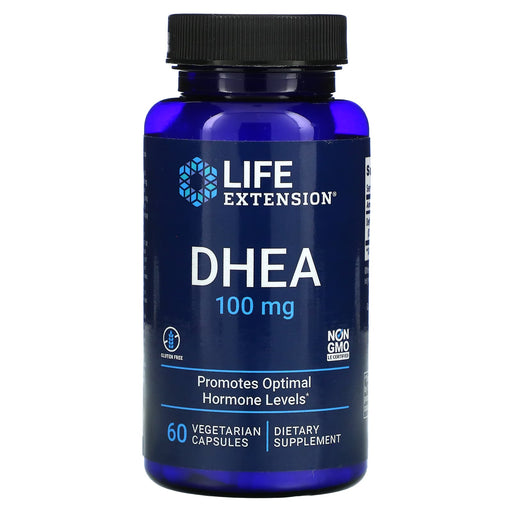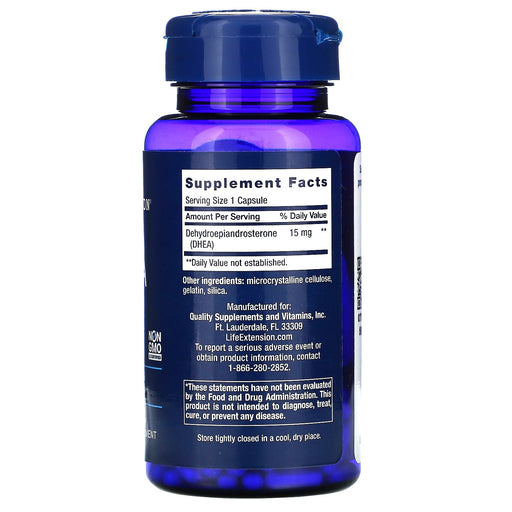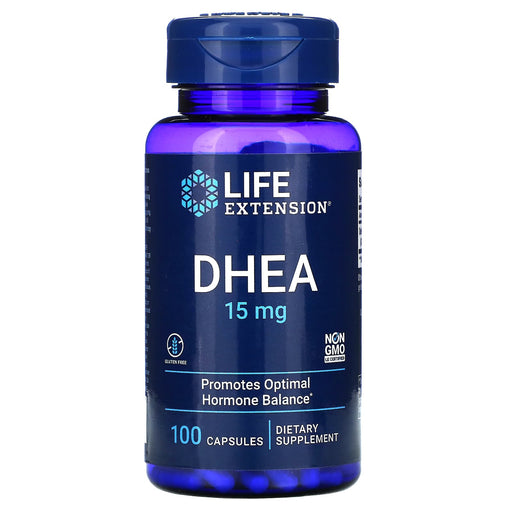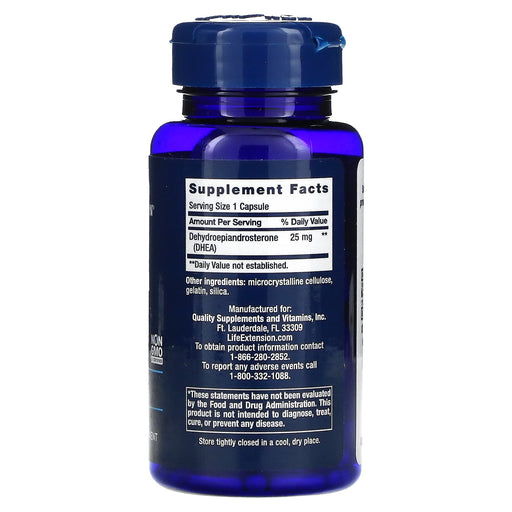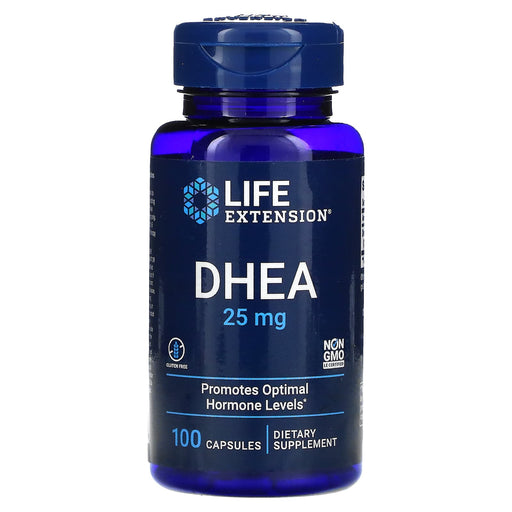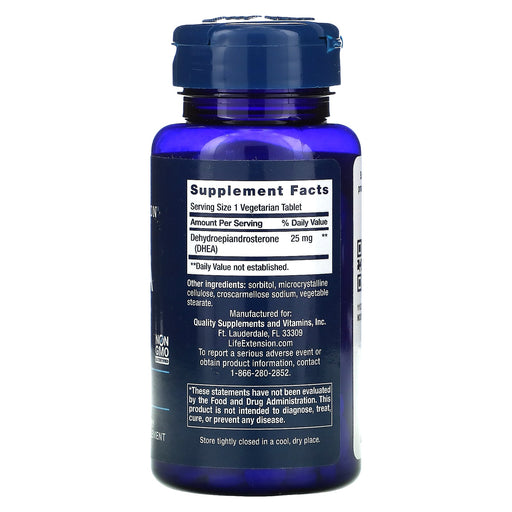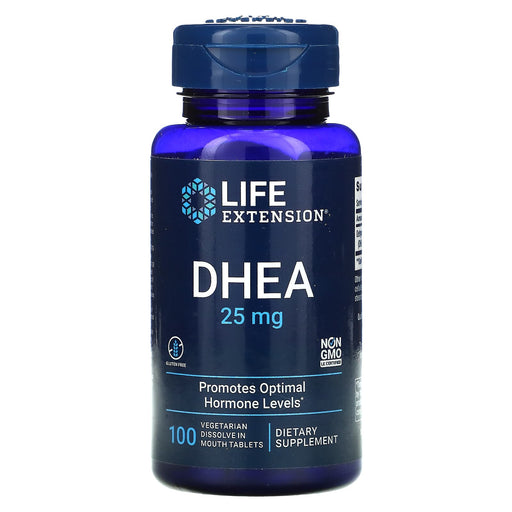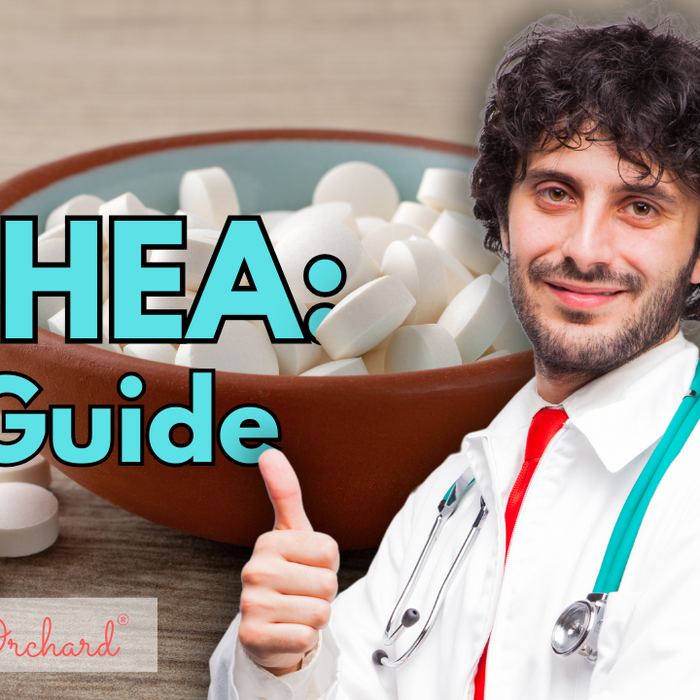
Promoting Healthy Aging and Hormone Balance with DHEA Supplements
Dehydroepiandrosterone (DHEA) is a naturally occurring hormone produced by the adrenal glands that plays a crucial role in various physiological processes, including hormone balance, stress response, and overall well-being. As we age, DHEA levels naturally decline, which may contribute to age-related health concerns. By incorporating DHEA supplements into your wellness routine, you can support healthy aging, hormone balance, and overall vitality.
Understanding the Role of DHEA
DHEA is a precursor hormone that can be converted into other important hormones, such as estrogen and testosterone. It plays a vital role in numerous bodily functions, including:
- Hormone Balance: DHEA helps maintain healthy levels of sex hormones, which are essential for reproductive health, libido, and overall well-being.
- Stress Response: DHEA helps regulate the body's response to stress by modulating the production of cortisol, the primary stress hormone.
- Immune Function: DHEA supports immune system function and may help protect against age-related immune decline.
- Bone Health: Adequate DHEA levels are associated with better bone mineral density and reduced risk of osteoporosis.
- Brain Function: DHEA may support cognitive function, memory, and overall brain health, particularly in older adults.
As we age, DHEA levels naturally decline, with peak production occurring in our mid-20s and gradually decreasing thereafter. This decline may contribute to various age-related health concerns, such as hormonal imbalances, reduced bone density, and cognitive decline. DHEA supplements can help restore optimal levels and support healthy aging.
Benefits of DHEA Supplementation
Incorporating DHEA supplements into your wellness routine may offer several potential benefits, including:
- Hormonal Balance: DHEA supplements can help maintain healthy levels of sex hormones, such as estrogen and testosterone, which are essential for reproductive health, libido, and overall well-being.
- Stress Management: By modulating cortisol production, DHEA supplements may help support a healthy stress response and promote emotional well-being.
- Immune Support: DHEA's role in supporting immune function may help protect against age-related immune decline and promote overall health.
- Bone Health: Maintaining optimal DHEA levels through supplementation may help support bone mineral density and reduce the risk of age-related bone loss and osteoporosis.
- Cognitive Function: DHEA supplements may help support cognitive performance, memory, and overall brain health, particularly in older adults experiencing age-related cognitive decline.
Choosing the Best DHEA Supplement
When selecting a DHEA supplement, it's essential to choose a high-quality product from a trusted brand. Consider the following factors:
- Quality and Purity: Look for supplements that are third-party tested for purity, potency, and the absence of contaminants, ensuring a safe and effective product.
- Appropriate Dosage: Choose supplements that provide a clinically effective dose of DHEA, typically ranging from 10-50 mg per day, depending on your age, health status, and specific needs.
- Form and Bioavailability: Consider supplements that use bioavailable forms of DHEA, such as micronized or liposomal formulations, to enhance absorption and efficacy.
- Brand Reputation: Select supplements from reputable brands with a history of producing high-quality, science-backed products and a commitment to transparency and safety.
- Synergistic Ingredients: Some DHEA supplements may include additional ingredients, such as antioxidants or adaptogens, to provide a synergistic effect and broader health support.
Tips for Incorporating DHEA Supplements into Your Wellness Routine
To maximize the benefits of DHEA supplements and promote healthy aging and hormone balance, consider the following tips:
- Consult with a Healthcare Professional: Before starting a DHEA supplement regimen, consult with a healthcare professional to determine if it's appropriate for your individual needs and to rule out any potential contraindications or interactions with existing medications.
- Monitor Hormone Levels: Work with your healthcare provider to regularly monitor your DHEA and other hormone levels through blood tests to ensure optimal balance and adjust your dosage as needed.
- Pair with a Healthy Lifestyle: While DHEA supplements can provide valuable support, they should be used in conjunction with a balanced diet, regular exercise, stress management, and other healthy aging practices for optimal results.
- Be Patient: The effects of DHEA supplementation may be gradual, and it may take several weeks or months to experience noticeable benefits. Be consistent with your supplementation and give your body time to adjust.
- Store Properly: To maintain the potency and freshness of your DHEA supplements, store them in a cool, dry place, away from direct sunlight and moisture.
Support Healthy Aging and Vitality with DHEA Supplements from Health Orchard
Promote optimal hormone balance, stress resilience, and overall well-being with Health Orchard's selection of top-quality DHEA supplements. Our carefully curated collection features a range of options to suit your individual needs and preferences, from pure DHEA to synergistic formulas designed for comprehensive support.
Experience the age-defying, vitalizing benefits of this essential hormone precursor and give your body the tools it needs to thrive. With a commitment to quality, efficacy, and your health goals, Health Orchard is your trusted source for the best DHEA supplements on the market. Explore our collection today and take charge of your healthy aging journey.
Frequently Asked Questions about DHEA
1. What does DHEA supplement do?
DHEA (Dehydroepiandrosterone) is a hormone produced naturally by the adrenal glands. DHEA supplements are believed to offer several potential benefits:
- Anti-aging effects: DHEA levels decline with age, and supplementation may help counteract some age-related changes in hormone levels and body composition
- Improved mood and well-being: DHEA may help alleviate symptoms of depression and improve overall well-being
- Enhanced cognitive function: Some studies suggest that DHEA may improve memory, concentration, and overall cognitive performance
- Increased bone density: DHEA may help increase bone mineral density, reducing the risk of osteoporosis
- Better body composition: DHEA supplementation may help decrease body fat and increase muscle mass
- Improved sexual function: DHEA may help improve libido and sexual function in both men and women
- Reduced inflammation: DHEA has anti-inflammatory properties and may help alleviate symptoms of inflammatory conditions such as rheumatoid arthritis
2. Is DHEA safe to take daily?
The safety of taking DHEA supplements daily depends on several factors, including dosage, duration of use, age, and individual health status. While DHEA is naturally produced in the body, supplementation may not be suitable for everyone.
Considerations for daily DHEA supplementation:
- Dosage: Most studies have used daily doses of 25-50 mg, but optimal dosing may vary depending on age, sex, and health status. It is essential to follow the recommended dosage instructions and consult with a healthcare professional
- Duration of use: Long-term safety data on DHEA supplementation is limited, so it may be advisable to use supplements for shorter periods or cycle on and off
- Age: DHEA levels naturally decline with age, and supplementation may be more beneficial for older adults. However, it is essential to consult with a healthcare provider to determine if DHEA supplementation is appropriate
3. Is DHEA a testosterone booster?
DHEA (Dehydroepiandrosterone) is a hormone that can be converted into testosterone and estrogen in the body. While DHEA supplements may indirectly support testosterone levels, they are not considered a direct testosterone booster.
- DHEA conversion: In the body, DHEA serves as a precursor to testosterone and estrogen. However, the conversion rate of DHEA to testosterone can vary significantly between individuals
- Indirect support: By providing the body with more DHEA, supplements may indirectly support testosterone production, particularly in older individuals or those with lower natural DHEA levels
- Limited evidence: While some studies suggest that DHEA supplementation may increase testosterone levels, particularly in older men, the evidence is not conclusive, and results may vary widely between individuals
- Regulatory status: In the United States, DHEA is regulated as a dietary supplement, not as a testosterone booster or hormone replacement therapy
It is important to note that using DHEA supplements to boost testosterone levels without medical supervision may be risky, as it can lead to hormonal imbalances and potential side effects.
4. How can I increase my DHEA levels naturally?
While DHEA levels naturally decline with age, there are several lifestyle factors that may help support healthy DHEA levels:
- Exercise regularly: Engaging in regular physical activity, particularly high-intensity interval training (HIIT) and resistance training, has been shown to increase DHEA levels
- Maintain a healthy diet: Consuming a balanced diet rich in nutrients, such as protein, healthy fats, and antioxidants, may support overall endocrine function and DHEA production
- Manage stress: Chronic stress can negatively impact DHEA levels, so engaging in stress-reducing activities like meditation, yoga, or deep breathing exercises may be beneficial
- Get enough sleep: Adequate, high-quality sleep is essential for overall hormonal balance and may help support healthy DHEA levels
- Avoid excessive alcohol consumption: Heavy alcohol intake can disrupt hormonal balance and lower DHEA levels, so it is best to consume alcohol in moderation or avoid it altogether
5. How do I know if my DHEA is low?
Determining if your DHEA levels are low typically involves a blood test and consultation with a healthcare professional. Some signs and symptoms that may indicate low DHEA levels include:
- Fatigue and low energy levels
- Decreased muscle mass and strength
- Reduced bone density
- Depression or low mood
- Cognitive decline or memory issues
- Decreased libido or sexual function
- Skin changes, such as thinning or dryness
- Hormonal imbalances
6. Who should avoid DHEA?
While DHEA supplements may offer potential benefits for some individuals, there are certain groups of people who should avoid using DHEA without consulting a healthcare professional:
- Pregnant and breastfeeding women: The safety of DHEA supplementation during pregnancy and breastfeeding has not been established, so it is best to avoid use during these periods
- Individuals with hormonal disorders: People with conditions such as polycystic ovary syndrome (PCOS), endometriosis, or breast, ovarian, or prostate cancer should avoid DHEA supplements, as they may exacerbate these conditions
- Those with liver disease: DHEA is metabolized in the liver, so individuals with liver disease or dysfunction should exercise caution and consult with their healthcare provider before using DHEA supplements
In general, it is always best to consult with a healthcare professional before starting any new supplement regimen, including DHEA, to ensure it is safe and appropriate for your individual needs and health status.
7. Can I take DHEA with other supplements?
The safety and efficacy of combining DHEA with other supplements depend on the specific supplements being used and your individual health status. Some general considerations include:
- Hormonal supplements: Combining DHEA with other hormonal supplements, such as testosterone or estrogen, may lead to hormonal imbalances and increase the risk of side effects. It is essential to consult with a healthcare professional before combining hormonal supplements
- Herbal supplements: Some herbal supplements, such as saw palmetto or tribulus terrestris, may also affect hormone levels. Combining these supplements with DHEA may lead to unexpected interactions or side effects
- Vitamin and mineral supplements: In general, combining DHEA with most vitamin and mineral supplements is considered safe, but it is still best to consult with a healthcare professional to ensure proper dosing and avoid potential interactions
- Medications: DHEA may interact with certain medications, such as antidepressants, blood thinners, or insulin, so it is crucial to inform your healthcare provider about all medications and supplements you are taking before starting DHEA supplementation


